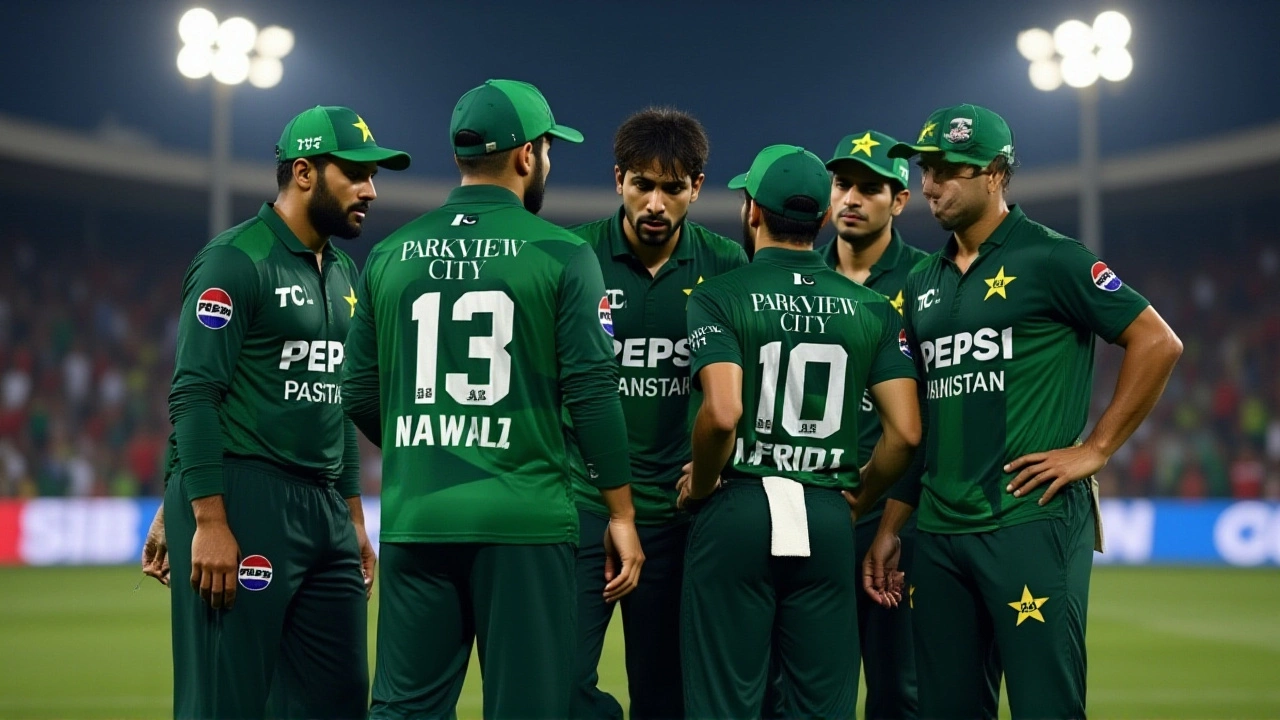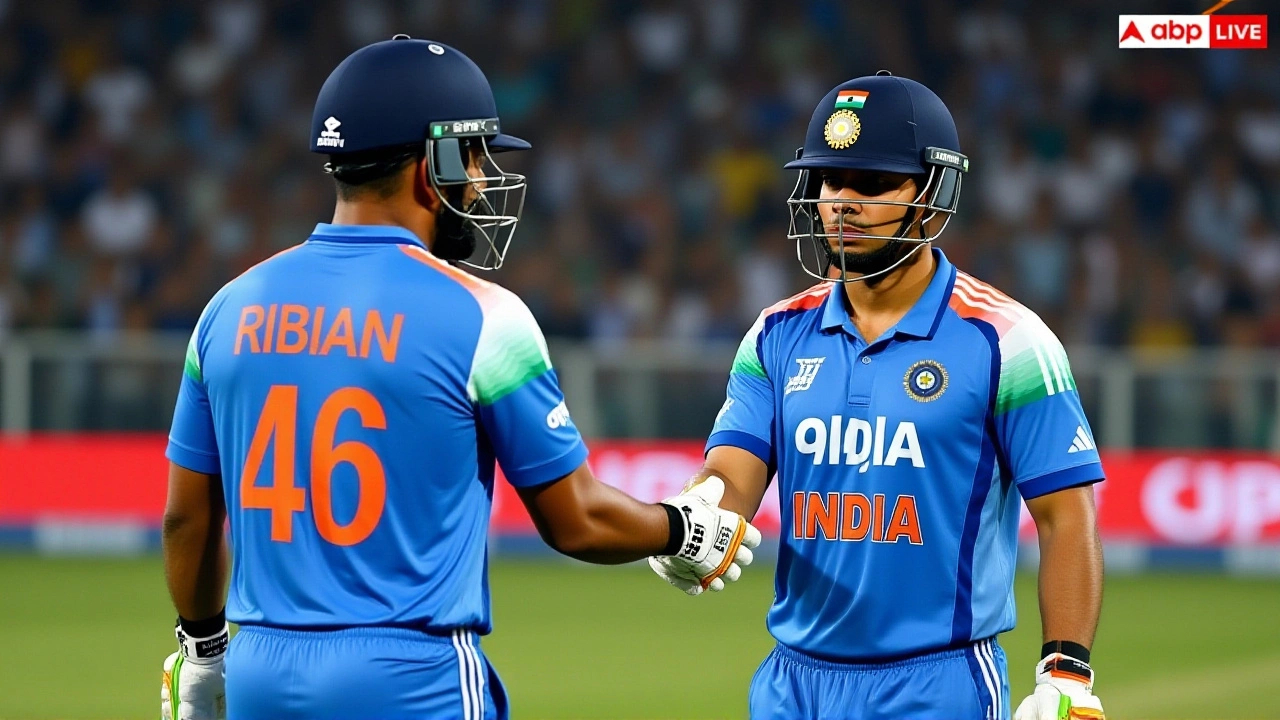In a pulse-pounding finish that will be replayed for years, Pakistan A clinched the Asia Cup Rising Stars 2025West End Park International Cricket Stadium on Sunday, November 23, 2025, defeating Bangladesh A by chasing 7 runs in just 4 balls during a nerve-shredding super over. The final, played under the desert lights of Doha, ended in a tie after both teams posted 125 all out in their 20 overs — but it was Pakistan A’s cool-headed finishers who held their nerve when it mattered most. The win marks their third Asia Cup Rising Stars title in four editions (2019, 2023, 2025), making them the most successful team in the tournament’s history.
A Tie That Broke Hearts
It was Bangladesh A captain Akbar Ali (wicketkeeper-captain) who won the toss and chose to bowl first — a decision that looked smart early on. Pakistan A’s innings collapsed under pressure, losing their opener Yasir Khan on the very first ball. Three batters were out for ducks, and at 87 for 6, the match seemed to be slipping away. But then came Saud Masood, who smashed 38 off 26 balls — his innings laced with three fours and three sixes — to keep Pakistan A alive. He and Shahid Aziz added 41 runs in just 24 deliveries for the seventh wicket, turning the tide. When the last ball of the 20th over was bowled, Pakistan A had scraped together 125 for 10.
Bangladesh A’s reply was no less dramatic. Their powerplay ended at 28 for 3, and by the 12th over, they were 62 for 5. But Habibur Rahman Sohan (26), Rakibul Hasan (24), and S.M. Maherb (19) stitched together a gritty middle-order recovery. The real fireworks came in the final three overs. Abdul Gaffar Saklain and Ripon Mondol unleashed a flurry of boundaries — 20 runs came off the 19th over alone — to drag Bangladesh A to 125 for 9. The crowd erupted. The scoreboard read TIE. The super over was inevitable.
The Super Over That Made History
Bangladesh A sent in Rakibul Hasan and S.M. Maherb to face Ahmad Daniyal. The first ball was a dot. The second? A wicket. The third? Another. Two wickets, six runs. Bangladesh A finished at 6 for 2. Pakistan A’s target: 7 runs in 6 balls.
Up stepped Saud Masood — the same man who had carried the innings — and Mazhar Sadat, who had scored 23 in the main innings. The first ball: a single. Second: a boundary. Third: another single. Fourth: a six. They needed only four balls. The stadium fell silent. Then, chaos. Pakistan A’s players sprinted onto the field. The trophy was theirs. Again.
Behind the Scenes: The Unsung Heroes
While the super over stole headlines, the real story was in the details. Sufyan Mukim didn’t bat, but his 3-0-12-3 bowling figures were devastating — all three wickets were clean bowled. Arafat Minhaz chipped in with 25 runs and a crucial 19th-over spell that kept Bangladesh A from accelerating earlier. And then there was Shahid Aziz, the quiet anchor who held the innings together when everything else was crumbling.
For Bangladesh A, Ripon Mondol was their only bright spot — 3 for 25 in 4 overs, including a brutal 19th over that nearly won them the match. But in cricket, as in life, one over too late can cost you everything.
Why This Matters Beyond the Trophy
This isn’t just about a trophy. The Asia Cup Rising Stars is the proving ground for the next generation of international cricketers. Pakistan A’s dominance signals a deep talent pipeline — with players like Mazhar Sadat, Sufyan Mukim, and Arafat Minhaz already showing they can handle pressure at the highest level. Meanwhile, Bangladesh A’s fight, though in vain, proves their system is producing gritty, competitive players. Both teams will feed directly into their senior national squads within the next 18 months.
For Pakistan, this is a statement: their domestic structure is working. For Bangladesh, it’s a wake-up call — they’re close, but they need more finishers, more calm under fire. The difference between these two teams? One had a player who could clear the ropes in the 10th over of a super over. The other didn’t.

What’s Next?
With the Rising Stars tournament now complete, attention shifts to the ICC Under-19 World Cup next year and the senior Asia Cup in 2026. Several players from this final — especially Saud Masood and Sufyan Mukim — are already being tracked by Pakistan’s national selectors. Meanwhile, Bangladesh’s cricket board has promised a review of their middle-order strategy, after three consecutive finals losses in this format.
And what about the venue? Doha’s West End Park proved to be a neutral, high-quality stage — and with the UAE and Sri Lanka also bidding for future editions, the Rising Stars tournament is becoming a global platform for emerging talent.
Full Playing XIs
Pakistan A: Mazhar Sadat, Yasir Khan, Muhammad Faqir, Irfan Khan (c), Gazi Gori (wk), Saud Masood, Arafat Minhaz, Shahid Aziz, Ahmad Daniyal, Ubaid Shah, Sufyan Mukim.
Bangladesh A: Habibur Rahman Sohan, Jishan Alam, Yasir Ali, Akbar Ali (c/wk), Mahidul Islam Ankon, S.M. Maherb, Mrityunjay Chaudhary, Mahfuzur Rahman Rabbie, Rakibul Hasan, Abdul Gaffar Saklain, Ripon Mondol.
Frequently Asked Questions
How many times has Pakistan A won the Asia Cup Rising Stars?
Pakistan A has now won the Asia Cup Rising Stars three times — in 2019, 2023, and 2025 — making them the most successful team in the tournament’s history. No other nation has won it more than once. Bangladesh A reached the final three times but lost each time, including this one.
Who was the standout performer in the final?
Saud Masood was the clear standout — his 38-run knock in the main innings kept Pakistan A alive, and then he smashed the winning six in the super over off just the fourth ball. His ability to stay calm under pressure and deliver in crunch moments made him the player of the match. Ahmad Daniyal’s super over (2 wickets for 6 runs) was equally crucial.
Why did Bangladesh A lose despite a strong finish?
Bangladesh A’s collapse in the middle overs — losing 5 wickets for 34 runs between overs 10 and 15 — cost them dearly. Even though Ripon Mondol and Abdul Gaffar Saklain powered a late surge, they had to chase 7 in the super over with only two batters left. Pakistan A’s depth and experience in high-pressure finishes proved decisive.
Is this tournament a pathway to the senior national team?
Absolutely. The Asia Cup Rising Stars is the official feeder tournament for senior national teams in Asia. Players like Saud Masood and Sufyan Mukim from Pakistan A are already on the radar of selectors. Bangladesh’s Habibur Rahman Sohan and Rakibul Hasan are also being closely monitored. Many current senior players, including Babar Azam and Shadab Khan, played in earlier editions of this tournament.
What was unique about the venue and timing of the final?
The match was played at West End Park International Cricket Stadium in Doha under lights — a rare night final in this tournament. The venue, known for its flat pitch and short boundaries, favored aggressive batting. The timing (November 23) was chosen to avoid clashes with senior international fixtures, giving emerging players a spotlight without interference from established stars.
Will the Asia Cup Rising Stars continue beyond 2025?
Yes. The Asian Cricket Council has confirmed the tournament will continue annually, with the 2026 edition already planned for Sri Lanka. The format is now considered a success, with TV ratings up 40% since 2023 and several ICC scouts regularly attending. It’s no longer just a development tournament — it’s a showcase.
